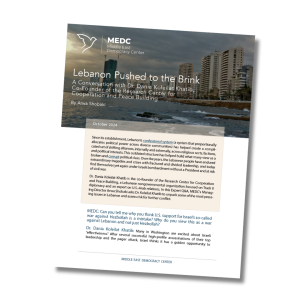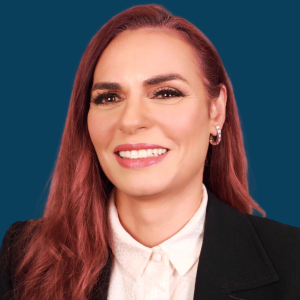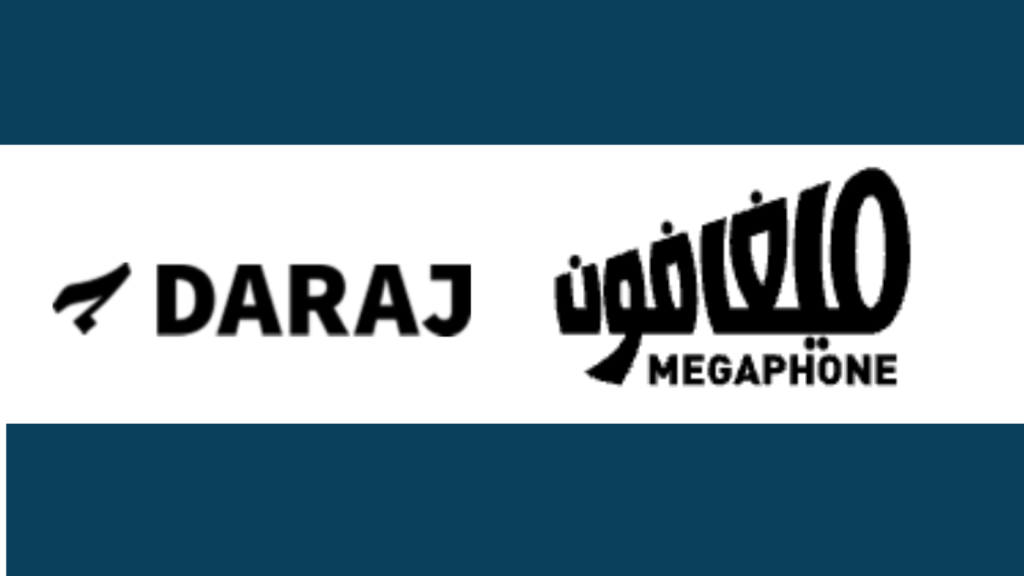 Since its establishment, Lebanon’s confessional system (a system that proportionally allocates political power across diverse communities) has helped create a complicated set of shifting alliances, internally and externally, across religious sects, factions, and political interests. This outdated structure has helped build what many view as a broken and corrupt political class. Over the years, the Lebanese people have endured extraordinary tragedies and crises, with fractured and divided leadership, and today find themselves yet again under Israeli bombardment without a President and at risk of civil war.
Since its establishment, Lebanon’s confessional system (a system that proportionally allocates political power across diverse communities) has helped create a complicated set of shifting alliances, internally and externally, across religious sects, factions, and political interests. This outdated structure has helped build what many view as a broken and corrupt political class. Over the years, the Lebanese people have endured extraordinary tragedies and crises, with fractured and divided leadership, and today find themselves yet again under Israeli bombardment without a President and at risk of civil war.
Dr. Dania Koleilat Khatib is the co-founder of the Research Center for Cooperation and Peace Building, a Lebanese nongovernmental organization focused on Track II diplomacy and an expert on U.S.-Arab relations. In this Expert Q&A, MEDC’s Managing Director Arwa Shobaki asks Dr. Koleilat Khatib to unpack some of the most pressing issues in Lebanon and assess risk for further conflict.
MEDC: Can you tell me why you think U.S. support for Israel’s so-called war against Hezbollah is a mistake? Why do you view this as a war against Lebanon and not just Hezbollah?
Dr. Dania Koleilat Khatib: Many in Washington are excited about Israeli “effectiveness.” After several successful high-profile assassinations of their top leadership and the pager attack, Israel thinks it has a golden opportunity to eradicate Hezbollah, Iran’s strongest proxy in the Arab world, leading to a significant shift in the balance of power in the region. I believe the conventional assumption that eradicating them will weaken Iran across the region is wrong.
Over the past years, Hezbollah has gained power but lost popular support in Lebanon. The group used its arms against other Lebanese in 2008. The 18-months of open conflict and the eventual taking of Beirut by force was resolved only through the Doha Agreement, resulting in significant political gains for Hezbollah. With the Syrian uprising that began in 2011, Hezbollah joined Syria’s dictator to counter the uprising and protect Bashar al-Assad. They also hold great influence over the Popular Mobilization Forces (hashd) in Iraq and have trained the Houthis in Yemen.
Since 2019, popular domestic discontent with Hezbollah’s role has only increased. When Lebanese took to the streets in peaceful protests to demand an end to the corruption and corrupt political class, Hezbollah members attacked protestors. People began to describe their role as no longer protecting Lebanon but protecting corruption. After the devastating port explosion in August 2020, Hezbollah was accused of storing the large amount of ammonium nitrate in the port of Beirut that led to the tragic explosion, but they denied any responsibility and stood adamantly against the investigation into the blast led by judge Tarek Bitar. This further widened the wedge between the Lebanese popular opposition and Hezbollah.
Despite this checkered history, many across Lebanon were angered by the assassination of the group’s Secretary General, Hassan Nasrallah. As much as some Lebanese resented Nasrallah and blamed him for helping to drive the country into ruin, many also recognize that Hezbollah has long presented an important deterrence for the Lebanese against Israel. They have also importantly played the role of supporter and protector to Lebanon’s large Shiite population that has historically suffered significant socio-economic injustices (al-mahrumeen). And with Nasrallah’s death, many Lebanese feel this loss.
Through Hezbollah’s expanded regional role, especially in Syria and with the Assad regime, it became more exposed outside of its inner circles resulting in successful breaches of their intelligence and the eventual assassination of their top leaders. This war and these recent assassinations have led the group to reassess its methods and operations. As a result, Hezbollah will find an opportunity to recreate itself and regain the legitimacy it lost over the years. It is more than a militia, it is an idea, and I believe the current war on Lebanon will renew their legitimacy and ultimately lead to their revival in another shape or form.
Lebanon is politically divided and polarized over Hezbollah’s support of Hamas this past year and the recent high-level assassinations of Hezbollah’s leadership. Can you give us a brief description of these political divisions and their relevance today?
The majority of the Lebanese did not want Lebanon’s direct involvement in this war. Despite the fact that Palestine is a highly salient issue and there is unanimous support for the Palestinian people’s right to statehood, the Lebanese realize that they cannot get involved in an uneven fight.
Since 2022, the country has been without a president. Hezbollah is blamed for this because they are blocking any election that does not bring their preferred candidate to the presidency. Today Hezbollah is demanding a ceasefire before the elections of a President; their rationale is that Hezbollah parliamentarians are a target for Israel and therefore they are unsafe to participate in the election and cannot even gather in one place. Other parties are requiring an immediate election of a President; their rationale is that in these dangerous times, the election of a President is necessary, and Lebanon is a country at war and cannot remain without leadership. For this reason, the divisions that existed before the war have only deepened with this war.
How is the Israeli war against Lebanon risking a potential civil war in Lebanon?
Unlike 2006 when there was more popular support and solidarity with Hezbollah, the situation today is very different for many of the reasons previously discussed. Israel is capitalizing on this discontent and will directly benefit if there is further internal instability and civil strife in Lebanon. Israel not only wants to weaken Hezbollah and degrade its capabilities, it also wants to strangle its social incubator. When the Lebanese are busy fighting each other and Hezbollah is busy fending off other factions internally, Israel can have a free hand in the country.
Israel is no longer only attacking the leadership of Hezbollah. For example, Baadaran, a Druze village in Shouf was attacked late last month. A Druze family was sheltering a Shiite family. Both families were killed. A village in Zgharta, the heartland of the Maronite Christian areas was also recently attacked. This is pushing the Lebanese to refrain from sheltering or offering help to Shiites in fear of being bombed by Israel. Therefore, the pressure on the Shiite community is significant. 1.2 million people have been forced to flee their homes in the South, and at the same time Israel is creating a hostile environment in the rest of the country, making it difficult for the Shiite to find refuge among other populations for fear of Israeli strikes.
Is there a political solution to avoid further escalation and end the conflict? How would you advise policy makers in this consequential period for Lebanon?
In order to end the daily deaths and destruction and avoid a possible civil war, I believe a political solution needs to be put on the table quickly. We need a solution where Lebanon establishes some deterrence against Israel, so that entities like Hezbollah or any other will not be needed to defend its borders and residents. But because Lebanon alone cannot establish the necessary deterrence, it will require the support of a third-party.
Kosovo is a good example of how to approach Lebanon’s current situation. The NATO mission in the Balkans worked well because of the strength of the nation’s supporting the mission. It was a security guarantor that no one wanted to provoke. I believe we need the same thing in Lebanon. We need a real deterrent backed by military strength to deploy next to the Lebanese armed forces to make sure both sides do not engage. While UNIFIL’s presence on the Lebanese border is helpful, under its current Chapter VI mandate it is limited only to monitoring and not enforcement. In order for UNIFIL’s mandate to be strengthened to enforcement, its mandate will need to be changed to Chapter VII through a new UN resolution. This will be difficult under the current circumstances and will likely be vetoed by Russia or China.
In the current conditions, I think the most eligible country to play this third-party role is Turkey. Turkey has already expressed its willingness to be a security guarantor and currently has a contingent within UNIFIL. If Lebanon were to sign a mutual defense treaty with Turkey and Turkish soldiers deployed alongside UNIFIL, they could protect Lebanon from any potential Israeli aggression and ensure Hezbollah doesn’t threaten Israel. However, Turkey would not agree to do this without something in return. Israel would likely not want such a strong army on its border, and Hezbollah and Iran might not accept Turkish troops in the South because it would limit their influence and freedom of movement. But this current escalation and conflict calls for us all to be thinking outside the box for a political solution. The international community and the United States need to start thinking practically to end this war. They must play a role in pressuring Israel to accept a political solution that provides security for both Israel and Lebanon that will allow citizens on both sides of the borders to return to their homes.
The Expert
Dr. Dania Koleilat Khatib is a specialist in U.S.-Arab relations with a focus on lobbying. She is co-founder of the Research Center for Cooperation and Peace Building, a Lebanese nongovernmental organization focused on Track II. She is a weekly columnist for Arab News.
The Author
Arwa Shobaki is managing director of the Middle East Democracy Center (MEDC). She is on X @globalbedouin1.




